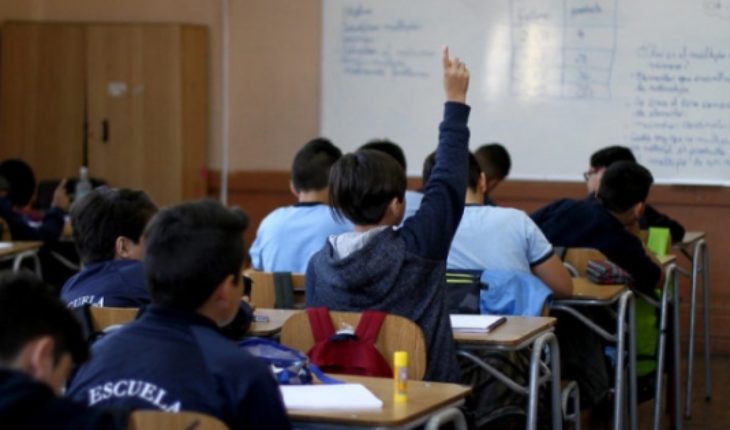It is estimated that in Chile 10% of schoolchildren have been diagnosed with attentional deficit hyperactivity disorder (ADHD). The figure is twice the global average, which is 5% incidence. How did you get to that distance with other countries? An ethnographic study conducted by the UC Educational Justice Center (CJE) and the NDE Research Platform reveals questionable practices of educational establishments on psychological evaluations of minors.
Researchers conducted ethnography in schools – which have state grants to address special educational needs – in different communes of Santiago. Ethnography accounted for procedures in which teachers, or any other education professional, call for psychological evaluations of children.
“What happens with these mental health measurement instruments is that education professionals make observations, whether inside the classroom, in the courtyard, and about what they observe is that they feel the need for students to go to specialists,” said the CJE principal researcher and academic at the UC School of Education, Claudia Matus.
Getting bored in classes, shyness, or even mixing salad with dessert were reasons pointed out by professionals to refer children to specialists in the area of psychology or neurology.
“As for our research, today we understand that, often, diagnosis is aimed at facilitating the management of students within the room, rather than facilitating learning,” Matus explained.
The study also provided for the insistence of schools on the proxys to take their sons and/or daughters to psychologists or neurologists to obtain a diagnosis.
Diagnostic culture
Mental health measurement instruments are a problem: the ambiguity of observations.
“They have style questions: if it’s friendly, if it’s complete, if it’s porfiado, if you’re looking for too much attention from the teacher, if you’re sociable, they’re super-ambiguous things. We started to get the attention of how this idea of a boy or girl that didn’t work well in the school space has been fabricated,” she said.
And this leads, as the researchers indicate, to a pathologization of attitudes, behaviors and emotions that were not previously considered in this way. This is the case of children with shyness or that of the child who combined the salad with dessert.
“The problem is that this culture of diagnosis has become naturalized in recent years and we have begun to believe that everything that does not fit the expectations of the order of the classroom or the idealized image of students learning , is a symptom of a psychological problem,” added CJE researcher Macarena Garcia.
Matus emphasized that they “position anything in the individual. I have to solve something to function well in a school space and we don’t see that suddenly it’s the whole system as it’s working that makes us not fit. It exhausts the location of the problem and how to solve it in individual, which is extremely complex, and takes the weight off everything we already know from the school space, which is highly segregated, we have all the evidence standardized.”
“Not everything is diagnosable,” say the specialists, who believe that these observations are framed in a paradigm that promotes the idea that children learn when they are sitting on their chairs facing the board.





